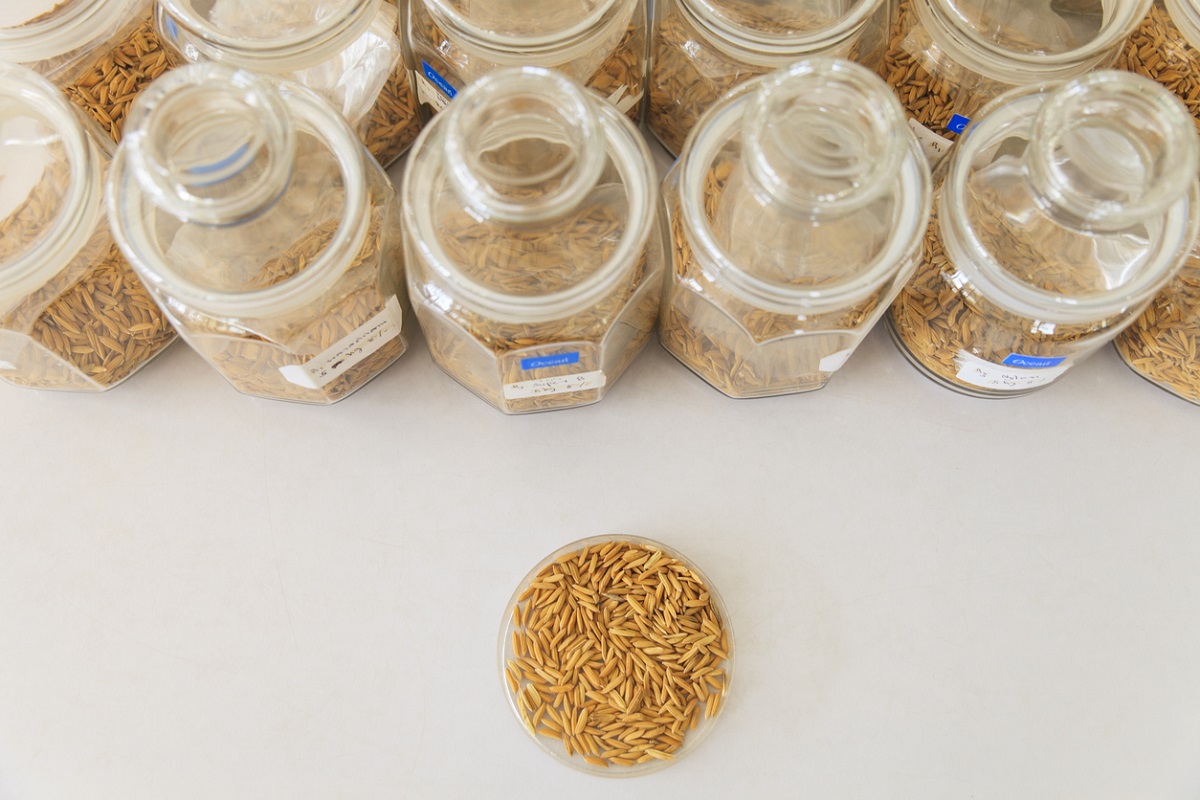
High-Efficiency Reduction of Rice Amylose Content via CRISPR-Cas9-Mediated Base Editing
June 17, 2020| |
Chinese Academy of Sciences and partner institutions used CRISPR-Cas9 to develop a simple and highly efficient approach for mild reduction of rice amylose content, by which the rice eating and cooking quality might be improved. This is the first report about moderately decreasing rice amylose content through base editing of the Wx gene.
Compared with previous studies, the new approach induced amino acid substitution mutation to slightly reduce Wx function without affecting grain appearance. Furthermore, the appearance, quality, and yield-related traits of edited lines were not affected. All these transgene-free and homozygous lines were generated in less than one year, which indicates significant time and labor savings compared to conventional breeding. This study also shows that it is possible to develop beneficial mutations by editing amino acids close to the critical domain of the product of a target gene.
Read more Rice Science.| |
You might also like:
- Suppression of OsMADS7 in Rice Endosperm Stabilizes Amylose Content under High Temperature Stress
- Gene for Amylose Synthesis Identified
- Development of High-Amylose Rice through CRISPR/Cas9
Biotech Updates is a weekly newsletter of ISAAA, a not-for-profit organization. It is distributed for free to over 22,000 subscribers worldwide to inform them about the key developments in biosciences, especially in biotechnology. Your support will help us in our mission to feed the world with knowledge. You can help by donating as little as $10.
-
See more articles:
-
News from Around the World
- Soil Health Trailblazer is 2020 World Food Prize Laureate
- Genome Editing 101: Healthcare and Industrial Applications and Regulations
- Australian OGTR Authorizes Clinical Trial of GM Influenza Vaccine
- World Experts Release Roadmap for Next Generation Crops
-
Research Highlights
- Israeli Scientists Discover Possibilities of Plant-Sustained Electricity
- Study Reveals Transgenic Goats Can be Used to Produce Antibodies Against Cancer
- OsCpn60β1 Vital for Chloroplast Development in Rice, Study
-
Plant
- High-Efficiency Reduction of Rice Amylose Content via CRISPR-Cas9-Mediated Base Editing
- New Protocol: Genome Editing Using Rice Zygotes
-
Health
- Scientists Find Super-potent Human Antibodies from Recovered COVID-19 Patients
-
Read the latest: - Biotech Updates (December 17, 2025)
- Gene Editing Supplement (December 17, 2025)
- Gene Drive Supplement (February 22, 2023)
-
Subscribe to BU: - Share
- Tweet

